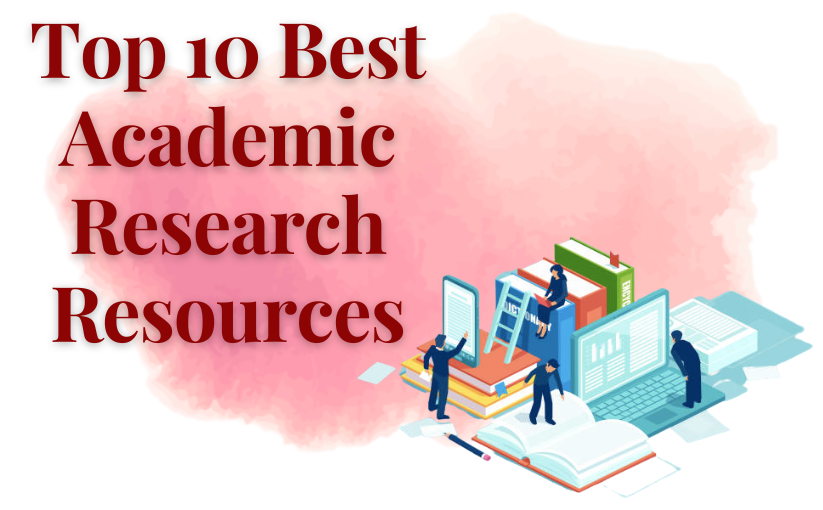Unlock New Learning Opportunities with Docentra Extensive Educational Materials
Unlock New Learning Opportunities with Docentra Extensive Educational Materials
Blog Article
Where to Locate Top Quality Academic Resources for Your Research
Identifying high-grade academic sources is important for extensive study, yet navigating the huge landscape of readily available materials can be intimidating. In addition, online academic data sources like JSTOR and PubMed accumulated academic posts, while open gain access to journals offer even more comprehensive access to research study searchings for. Understanding just how to take advantage of these resources efficiently could considerably impact your study end results.
University Libraries

Beyond physical collections, university libraries frequently supply specialized study aid, including consultations with curators who have subject know-how (Docentra). This guidance can considerably improve the performance and efficiency of the research procedure, allowing customers to navigate intricate information landscapes with higher simplicity
Additionally, many collections offer access to unusual and historical products, which can be important for sophisticated research tasks. Such unique sources often include key documents, manuscripts, and historical collections that are not readily available elsewhere.
In addition, college libraries often organize workshops and workshops targeted at enhancing information proficiency skills. These initiatives encourage students and professors to seriously review sources, a crucial skill in today's information-rich atmosphere. In general, university collections not only work as databases of understanding however also function as vibrant hubs that foster scholastic growth and advancement.
Online Academic Databases
In the world of academic research, on the internet academic databases play a crucial duty in providing trainees and scholars with immediate accessibility to a wide range of academic posts, journals, and other important resources. These digital databases act as centralized platforms where users can successfully browse for peer-reviewed literary works throughout different techniques.
Prominent databases such as JSTOR, PubMed, and Scopus host considerable collections that cover a wide range of subjects, from the liberal arts to the sciences. Docentra. By utilizing advanced search functionalities, scientists can improve their questions, filter outcomes by publication date, and access citation tools, therefore enhancing the research process's performance and accuracy
Additionally, many databases offer attributes like alerts for brand-new publications and the capability to conserve and arrange write-ups, further improving the study experience. Memberships to these data sources are commonly supplied via academic institutions, providing pupils and professor unlimited access to premium content.
Open Access Journals
Significantly, scientists are transforming to open access journals as a complementary source to traditional academic data sources. These journals offer a useful system for distributing study searchings for without the economic barriers commonly connected with subscription-based magazines. Open up accessibility versions enable cost-free on-line accessibility to academic write-ups, making certain that study is obtainable to a bigger target market, consisting of advice professionals, policymakers, and the public.
The quality of open access journals has actually dramatically improved, with many sticking to strenuous peer-review processes and being indexed in trustworthy data sources. This shift has fostered greater openness and collaboration in the academia, as researchers can share their work a lot more easily and receive responses from varied perspectives.
In addition, the spreading of open accessibility journals straightens with the worldwide activity in the direction of open science, advertising the idea that openly funded research need to be easily offered to all. Researchers seeking high-quality scholastic resources need to think about respectable open access journals, such as those provided in the Directory site of Open Gain Access To Journals (DOAJ) or those published by identified academic cultures. By integrating open gain access to journals right into their study techniques, scholars can boost the visibility and influence of their work.
ResearchGate and Academia.edu
ResearchGate and Academia.edu have actually emerged as crucial platforms for scholastic networking and knowledge sharing, with countless scientists leveraging these websites to share their job and get in touch with peers. Going Here Both platforms permit users to produce accounts that showcase their publications, study interests, and scholastic success, helping with higher presence within the scholarly area.
ResearchGate, established in 2008, concentrates on advertising collaboration among scientists via features such as research study cooperation devices, task sharing, and question-and-answer forums. Individuals can publish their documents, take part in conversations, and adhere to the job of others, enhancing the collaborative capacity of their research study. The system also supplies metrics theoretically exposure and downloads, permitting scientists to determine the impact of their work.
Academia.edu, introduced in 2008 too, runs in a similar way yet stresses the sharing of scholastic documents. Individuals can comply with certain study subjects and get updates on brand-new magazines within their areas of rate of interest. Additionally, Academia.edu provides analytics on reader engagement, helping researchers understand their audience better.
Both platforms act as valuable sources for accessing top quality academic web content and fostering connections that can result in impactful collaborations.
Google Scholar and Beyond
Academic networking platforms like ResearchGate and Academia.edu play a substantial duty in sharing research study, but Google Scholar provides a various dimension by functioning as a detailed online search engine for scholarly literary works. It indexes a substantial selection of sources, including peer-reviewed articles, theses, books, meeting process, and patents, making it an indispensable tool for scientists across techniques.
Google Scholar gives many features that boost research study efficiency. The citation monitoring function allows customers to see exactly how frequently a paper has actually been cited, giving insights into its influence within the academia. Furthermore, the "relevant posts" feature helps scientists find comparable research studies, facilitating a much more comprehensive expedition of a topic.

Verdict
In final thought, accessing top notch scholastic resources is important for extensive study. College libraries offer substantial collections and experienced advice, while online academic databases such as JSTOR and PubMed centralize academic short articles. Using these resources collectively can substantially boost other the top quality and deepness of academic research study.
Report this page